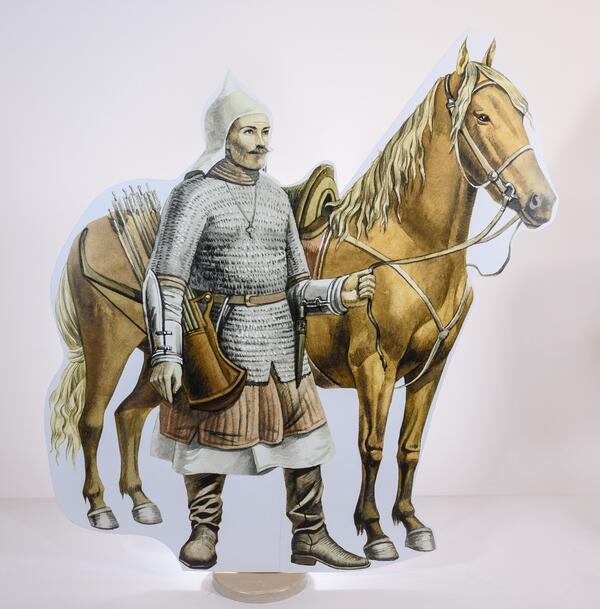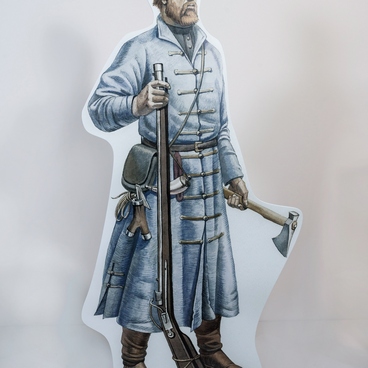The city of Tsaryovokokshaysk — modern Yoshkar-Ola — was founded in 1584 as a Russian military fortification. The Mari were allowed to settle at least five versts (5.33 km, or 3.31 miles) from the fortress walls, and they were forbidden to stay in the city at night. However, exceptions were made for two categories of the Mari population. One of them was the newly baptized Mari, who had recently converted to Christianity. For that, they were exempt from paying taxes for three years and allowed to live in a separate settlement near the city walls. As a rule, the baptized Mari had to perform military service.
Another privileged class was the tarkhans — the Mari who received a plot of land for special military or diplomatic services to the Russian state. They were also exempt from paying taxes. The word “tarkhan” came from the Turkic language. During the Golden Horde and the Khanate of Kazan, this was the name of noble warriors who had a special document from the khan — yarlyk.
The Mari tarkhans could choose their land. Nevertheless, they farmed it on their own and did not have serfs. A tarkhan usually headed a large administrative unit — volost — and held the rank of sotnik (commander of a hundred men). He collected taxes on the volost territory and led a hundred soldiers in case of war.
In their status, the tarkhans roughly corresponded to the petty Russian nobilities. All their titles, positions, and possessions were inherited. In addition, there was a custom of forgiving a tarkhan any nine misdeeds. His descendants to the ninth generation also inherited this right.
Some tarkhans adopted Orthodoxy. However, most of them remained pagans, so the tsarist authority trusted them less than the newly baptized. The landowners settled less than five versts from the city but still at some distance from it.
Judging by the documents of 1625, there were few tarkhans among the Mari. Only 34 people with this title lived in the Tsaryovokokshaysk area. In addition, in 1700, Peter I completely abolished this social class and introduced a poll tax for all the people of the Volga region.
Another privileged class was the tarkhans — the Mari who received a plot of land for special military or diplomatic services to the Russian state. They were also exempt from paying taxes. The word “tarkhan” came from the Turkic language. During the Golden Horde and the Khanate of Kazan, this was the name of noble warriors who had a special document from the khan — yarlyk.
The Mari tarkhans could choose their land. Nevertheless, they farmed it on their own and did not have serfs. A tarkhan usually headed a large administrative unit — volost — and held the rank of sotnik (commander of a hundred men). He collected taxes on the volost territory and led a hundred soldiers in case of war.
In their status, the tarkhans roughly corresponded to the petty Russian nobilities. All their titles, positions, and possessions were inherited. In addition, there was a custom of forgiving a tarkhan any nine misdeeds. His descendants to the ninth generation also inherited this right.
Some tarkhans adopted Orthodoxy. However, most of them remained pagans, so the tsarist authority trusted them less than the newly baptized. The landowners settled less than five versts from the city but still at some distance from it.
Judging by the documents of 1625, there were few tarkhans among the Mari. Only 34 people with this title lived in the Tsaryovokokshaysk area. In addition, in 1700, Peter I completely abolished this social class and introduced a poll tax for all the people of the Volga region.



